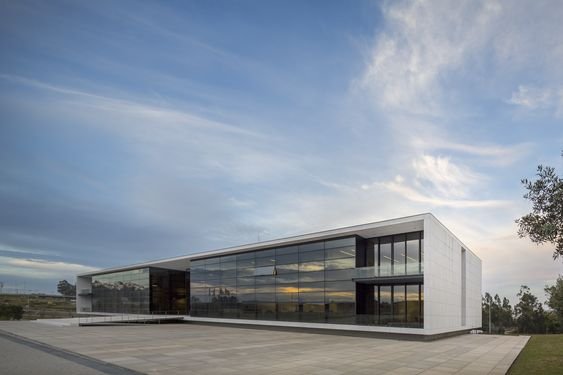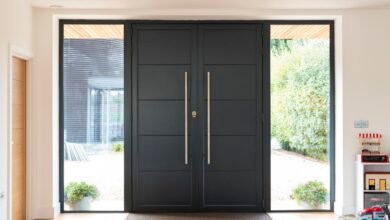How to Choose Commercial Windows and Doors for Sustainable Design?

Sustainability is becoming increasingly vital in every aspect of construction and design. As businesses strive to reduce their carbon footprint and enhance energy efficiency, the selection of commercial windows and doors plays a pivotal role. McDowell Glass, a pioneer in sustainable architectural solutions, offers insights into choosing the right windows and doors for sustainable design.
Introduction To Commercial Windows and Doors
In the realm of sustainable design, every component of a building is scrutinized for its environmental impact. Commercial doors and windows, being significant elements of any structure, are subject to intense scrutiny in this regard. With the right choices, businesses can not only reduce their environmental footprint but also enhance energy efficiency and occupant comfort.
Understanding Sustainable Design
Sustainable design goes beyond mere aesthetics; it encompasses environmental, social, and economic considerations. When selecting doors and windows for commercial spaces, it’s essential to evaluate their lifecycle impact, energy efficiency, material sourcing, and recyclability. McDowell Glass believes that sustainable design is a holistic approach that balances these factors to create environmentally responsible buildings.
Energy Efficiency Matters
One of the primary considerations when choosing commercial windows and doors is their energy efficiency. High-performance glazing systems can significantly reduce heat transfer, minimizing the need for artificial heating and cooling. Look for products with low U-values and high Solar Heat Gain Coefficients (SHGC) to optimize energy efficiency while maximizing natural light penetration.
Material Selection
The materials used in doors and windows have a substantial impact on sustainability. Opt for materials with low embodied energy and high durability. Wood, aluminum, and fiberglass are popular choices, each offering unique benefits. McDowell Glass specializes in sustainable materials, ensuring that every product meets stringent environmental standards without compromising on performance or aesthetics.
Certifications and Standards
Certifications such as ENERGY STAR, LEED, and Passive House provide valuable guidance in selecting sustainable doors and windows. These certifications ensure that products meet specific criteria for energy efficiency, environmental impact, and occupant comfort. McDowell Glass is committed to offering products that meet or exceed these standards, providing clients with confidence in their sustainability goals.
Daylighting and Views
Daylighting not only reduces the need for artificial lighting but also enhances occupant well-being and productivity. When choosing commercial windows, prioritize designs that maximize natural light penetration while minimizing glare and heat gain. Consider the building orientation and placement of windows to optimize daylighting and provide occupants with views of the surrounding environment.
Thermal Performance
Windows and doors are significant contributors to a building’s thermal performance. Poorly insulated frames and glazing can lead to heat loss or gain, compromising energy efficiency and occupant comfort. McDowell Glass offers a range of thermally broken frames and insulated glazing options to enhance thermal performance without sacrificing aesthetics.
Ventilation and Air Quality
Indoor air quality is crucial for occupant health and comfort. Proper ventilation through operable doors and windows helps maintain a healthy indoor environment by reducing pollutants and regulating humidity levels. Choose products that facilitate natural ventilation while ensuring security and weather protection. McDowell Glass designs innovative solutions that prioritize both air quality and energy efficiency.
Durability and Maintenance
Investing in durable windows and doors reduces the need for frequent replacements, minimizing waste and resource consumption. Choose products with robust construction and high-quality finishes to withstand the rigors of commercial use. McDowell Glass offers products engineered for longevity, backed by comprehensive warranties and maintenance plans to ensure continued performance and sustainability.
Recyclability and End-of-Life Considerations
Considering the end-of-life fate of windows and doors is essential for sustainable design. Choose products that are recyclable or made from recycled materials to minimize environmental impact. McDowell Glass is committed to responsible stewardship of resources, offering products that can be easily disassembled and recycled at the end of their lifespan.
Conclusion
Selecting commercial doors and windows for sustainable design requires careful consideration of various factors, including energy efficiency, material selection, certifications, and end-of-life considerations. McDowell Glass offers a comprehensive range of sustainable architectural solutions, designed to meet the unique needs of commercial projects while minimizing environmental impact. By prioritizing sustainability in window and door selection, businesses can contribute to a greener future while enjoying the benefits of energy efficiency, occupant comfort, and long-term durability.


